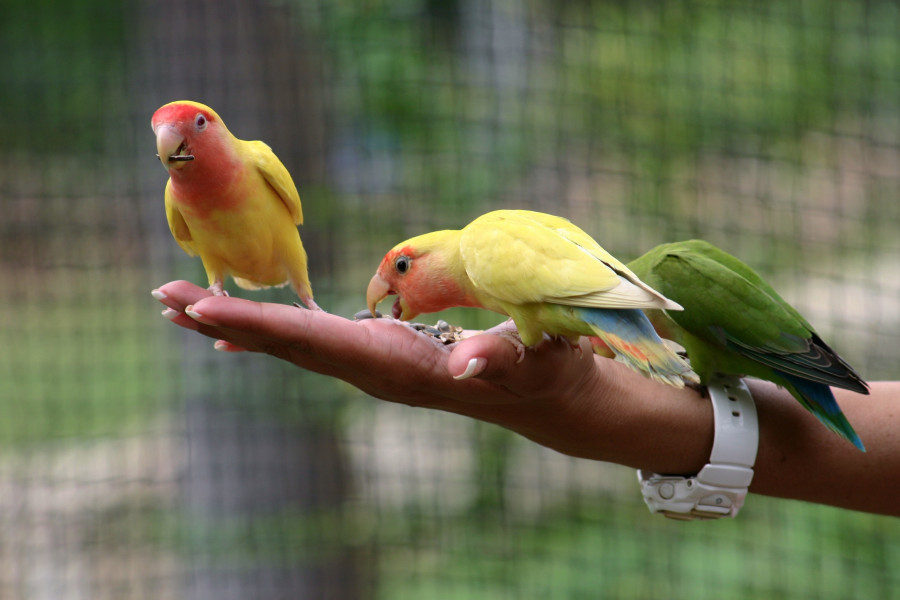Columns
Bright as a bird
Birdwatchers have long been at the forefront to protect wild species and their habitats.
Peter Singer & David S Wilcove
Birds are found worldwide, in many different environments, from penguins in Antarctica to pigeons in Trafalgar Square, and from the familiar sparrows on our lawns to the great albatrosses who spend years at sea without ever touching land. There are more than 10,000 species totalling many billions of wild individuals. To this we must add the tens of billions of birds we raise for their meat or eggs, and others we keep as pets.
Unfortunately, nearly one in seven of those 10,000-plus bird species is currently at risk of extinction. Even common species are declining. A recent study estimated that the total population of birds of all types in the United States and Canada has dropped by 30 percent since 1970.
It is easy to dismiss their fate. The use of the term “bird brain” as an insult suggests that many people have a low opinion of avian intelligence. But they are wrong. Irene Pepperberg’s work with Alex, a grey parrot who lived from 1976 to 2007, showed that a bird can learn concepts such as “colour” and “shape.” Pepperberg would show Alex a red cube and a red sphere, and ask “What is the same?” Alex would reply “colour.” When shown a red cube and a yellow cube, and asked the same question, Alex would say “shape.”
Parrots are not the only highly intelligent birds. In 2002, Betty, a New Caledonian crow, was faced with the puzzle of trying to get a piece of meat out of a tube. She bent a piece of wire and used it to hook the meat and pull it out, thus becoming not only a tool user, but a tool maker—characteristics once thought unique to humans. More recently, other New Caledonian crows have shown that they can mentally represent a three-stage task: Picking up a short stick, taking it around a corner to a place where it could be used to extricate a stone from a tube, and then taking the stone around another corner to a third place where, by dropping it down another tube, it would release a door and provide the crow with food.
Pigeons—often viewed with disdain by urban pedestrians—can learn to distinguish between the paintings of Monet and Picasso, even when shown paintings the birds have never seen before. They also grouped paintings by Cézanne and Renoir with those by Monet, and paintings by Braque and Matisse with paintings by Picasso. When Monet’s paintings were presented upside down, the pigeons failed to distinguish them from the cubists’ paintings. Presenting the Picassos upside down, however, made no difference.
Birds are very popular pets. Budgerigars, popularly known as “budgies” but also often referred to simply as “parakeets,” were first imported to the United Kingdom from their native Australia around 1840 and quickly became a hit with people. Today, they are among the most popular pets in the world. Hundreds of other species, including canaries, lovebirds, zebra finches, and a host of less well-known species, are also kept as pets.
Unfortunately, many people who buy birds as pets treat them as living ornaments, valued for their plumage or song rather than for their minds. They have little idea of how intelligent and complex their new companions are, and are unaware of basic care requirements. Budgies, for example, are long-lived (10-15 years if properly cared for) and highly social. Like dogs, they need a lot of one-on-one attention and affection from their owners, plus toys and time outside their cages, to keep them happy while their owners are not at home. Typically, however, pet birds are allowed to interact far less with their owners than dogs or cats are. And because they are usually caged, they cannot go to their owners when they want attention.
The fact that some types of birds can be bought for a few dollars at a pet store with no questions asked or training required is, therefore, not something that a society that cares about animal welfare should tolerate. Many birds end up at “rescue centres” for adoption, often exhibiting harmful behaviours like feather plucking, which stem from mistreatment.
Some simple reforms could improve the lives of pet birds. One would be to require people intending to purchase one to take an online course and pass a concluding exam. These exams could be tailored to the main types of pet birds, such as parrots and parakeets, and canaries, finches, mynahs, and other songbirds. An alternative would be to require those who sell pet birds to provide, both verbally and in writing, and prior to finalising a sale, all the essential information the buyer will need to care for their new pet properly.
People can also thoroughly enjoy birds without owning them. Birdwatching is an increasingly popular hobby around the world, offering thousands of species to see and no cages to clean. It boomed during the coronavirus lockdowns, and it appears to be retaining many of the new—and often younger—followers it picked up then.
Let’s hope that continues. Birdwatchers have long been at the forefront of efforts to protect wild species and their habitats. Our dwindling populations of wild birds need those efforts now more than ever.
—Project Syndicate




 9.7°C Kathmandu
9.7°C Kathmandu
















